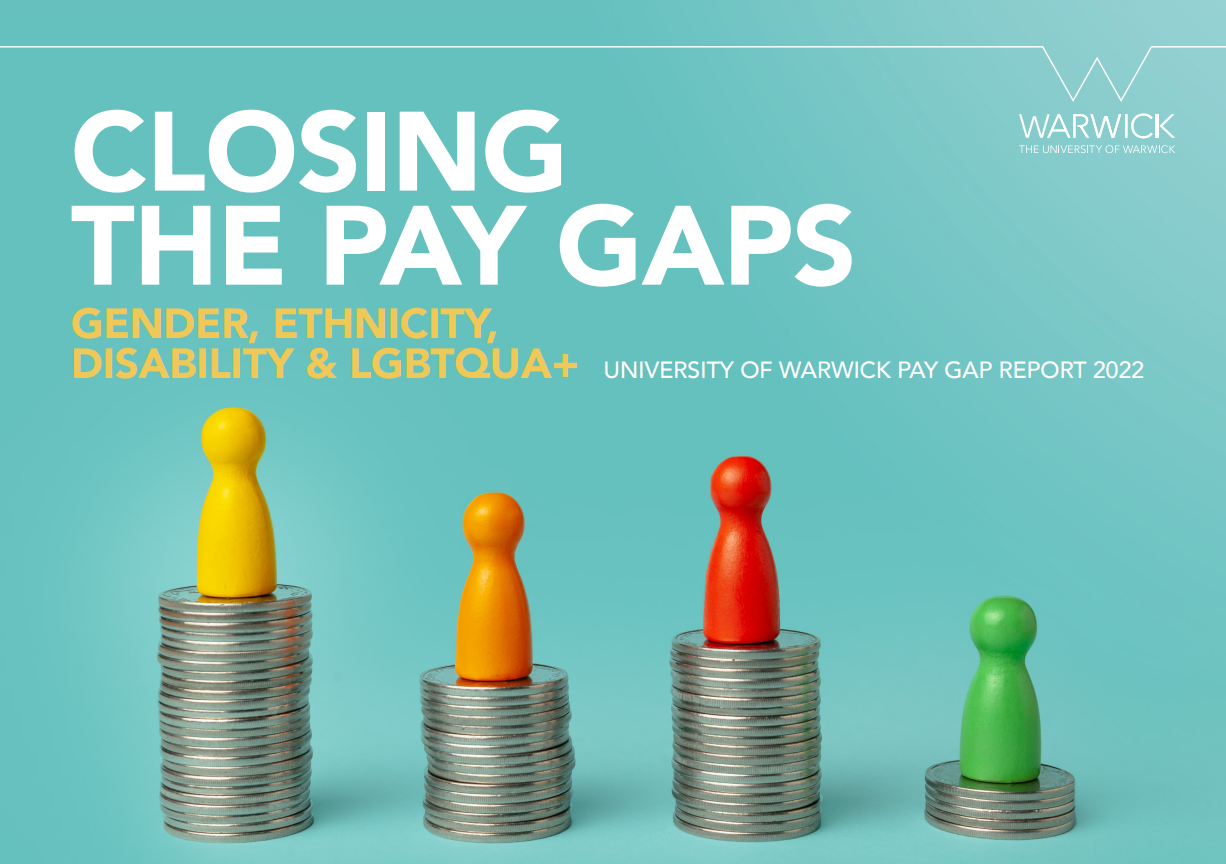Closing the pay gaps: we’re making progress
We are pleased to share that we have published our latest closing the pay gaps report, which measures differences between the average earnings of people working at our University.
This year’s pay gaps report shows that we are continuing to make steady progress in our journey and commitment to reducing the pay gaps and creating a more diverse workforce.
We started sharing the gender pay gap report in 2017, and in recent years, we have also shared our ethnicity, disability and LGBTQUA+ pay gaps. Although not required by law, they are essential to our commitment to making real progress in equality, diversity and inclusion.
The gender pay gap has continued to decrease in 2022. The mean has reduced by 1.6% to 20.3% and the median by 1.3% to 18.6%.
The mean ethnicity pay gap has decreased by 3.9% to 6.9%, while the median ethnicity pay gap has decreased by over 6% and is now 7.1%.
The mean hourly pay rate for staff with no known disability was 16.6% higher than for those who had declared a disability, while the median difference was 15.3%.
The pay gap in the mean hourly rate of pay for staff who declared LGBTQUA+ was -0.8%, a significant improvement from the 3.6% recorded in 2021. The median figure was 4.1%, slightly down from last year’s 4.5%.
We’re taking action
A number of initiatives have been put in place as part of our collective effort to reduce the pay gaps, and others are still being developed. Many of these activities form part of our broader commitment to social inclusionLink opens in a new window and creating a more diverse workforce.
Our Pay Action Group was formed in 2018. Led by the Provost, Chris Ennew, its purpose is to examine ways of reducing the gender and ethnicity pay gap across the University.
During 2021-22, 21 female staff members participated in the Aurora programme. This cohort included 10 academic and 11 professional services colleagues.
Warwick’s Information and Digital Group (IDG) has set up a programme to provide development opportunities for women in the department. This has created a shift in the gender profile of IDG, increasing the number of females to 50.5% overall. The number of females in grades 6-9 has also increased to 45%.
The Tackling Racial Inequality at Warwick staff development programme was launched in 2020 and is aimed at equipping staff with the knowledge and practical tools to engage with anti-racist practices and to challenge racial inequality at both individual and institutional levels.
Our Social Inclusion Strategy sets out targets for achieving a diverse workforce by 2030, and, as part of this, we continue our work on closing pay gaps. Through our developing People Strategy, we will proactively manage talent to attract and retain a more diverse workforce to support a culture where everyone can thrive.
Measures to reduce the pay gap take time to have an impact, and some of the actions we developed in response to the 2021 report have not had time to take full effect. Still, we recognise that our pace of change could be faster and that there is still work to be done.
What’s next?
At the University of Warwick, we take closing the pay gaps seriously. We’re working to create an environment that seeks out difference, embraces diversity, and values individuals as well as the wider community.
To do this, we need your help to better understand the makeup of our community – so we’re asking all colleagues to please answer the diversity monitoring questions on your personal record. You can update your record on SuccessFactorsLink opens in a new window, and it should only take a few minutes of your time. Find out more about what we ask and how we use itLink opens in a new window.
In the coming months, we’ll provide further updates on our Social Inclusion Strategy, and the work to develop our People Strategy and set of values is continuing with colleagues across Warwick.
You can find more breakdown of our data and actions in the full pay gaps reportLink opens in a new window.
If you have any questions about the report, please email: reward@warwick.ac.ukLink opens in a new window.

